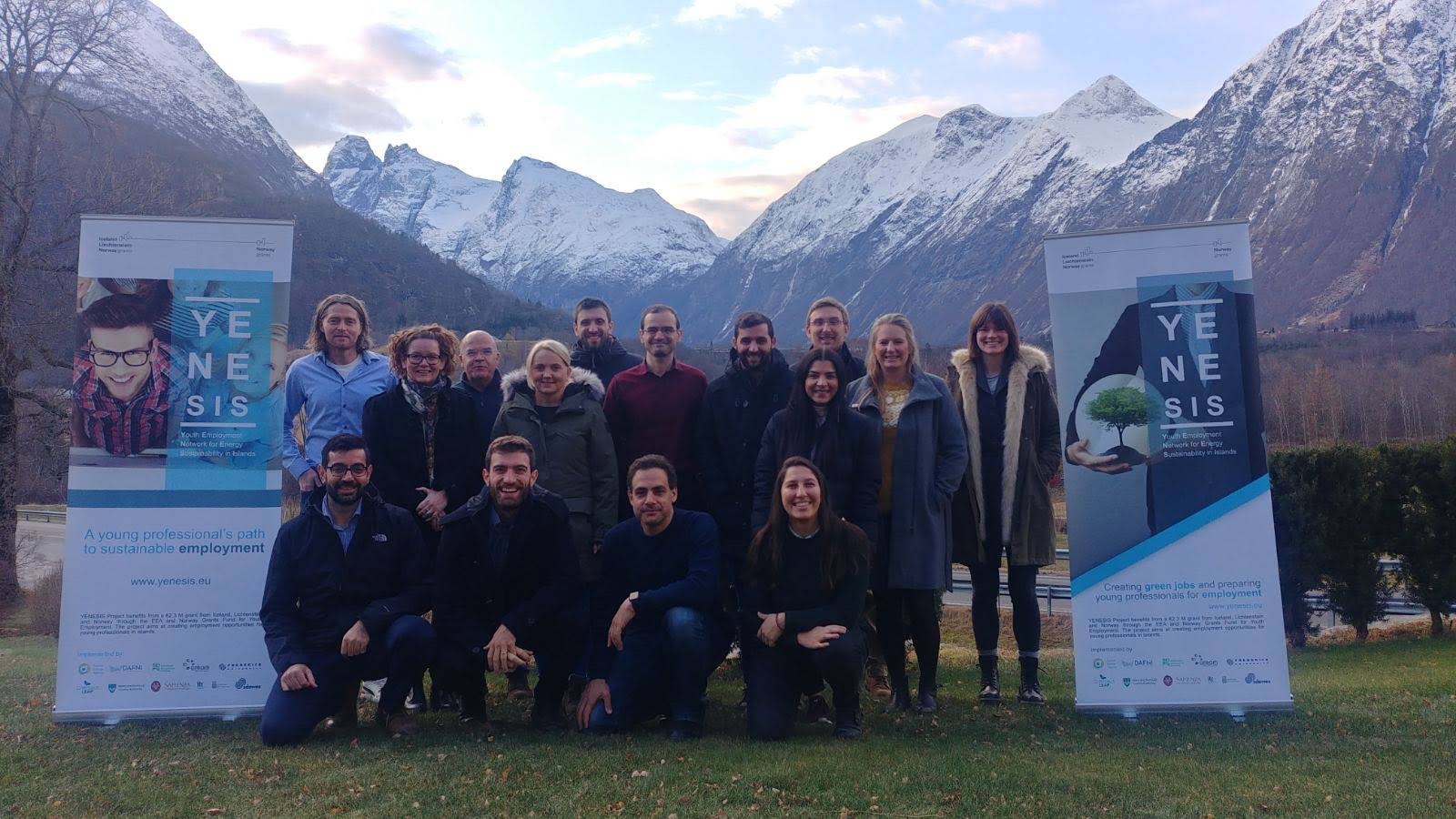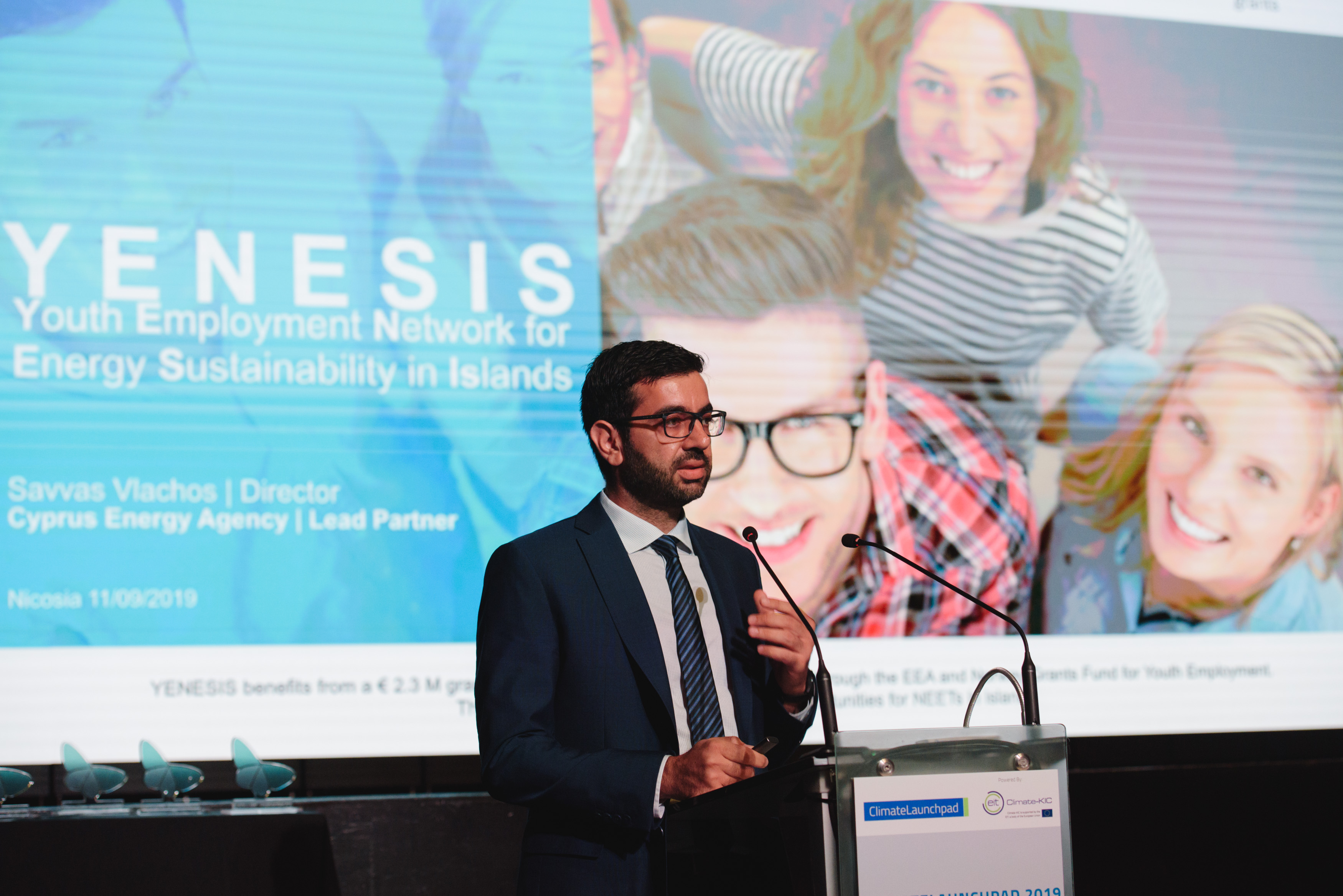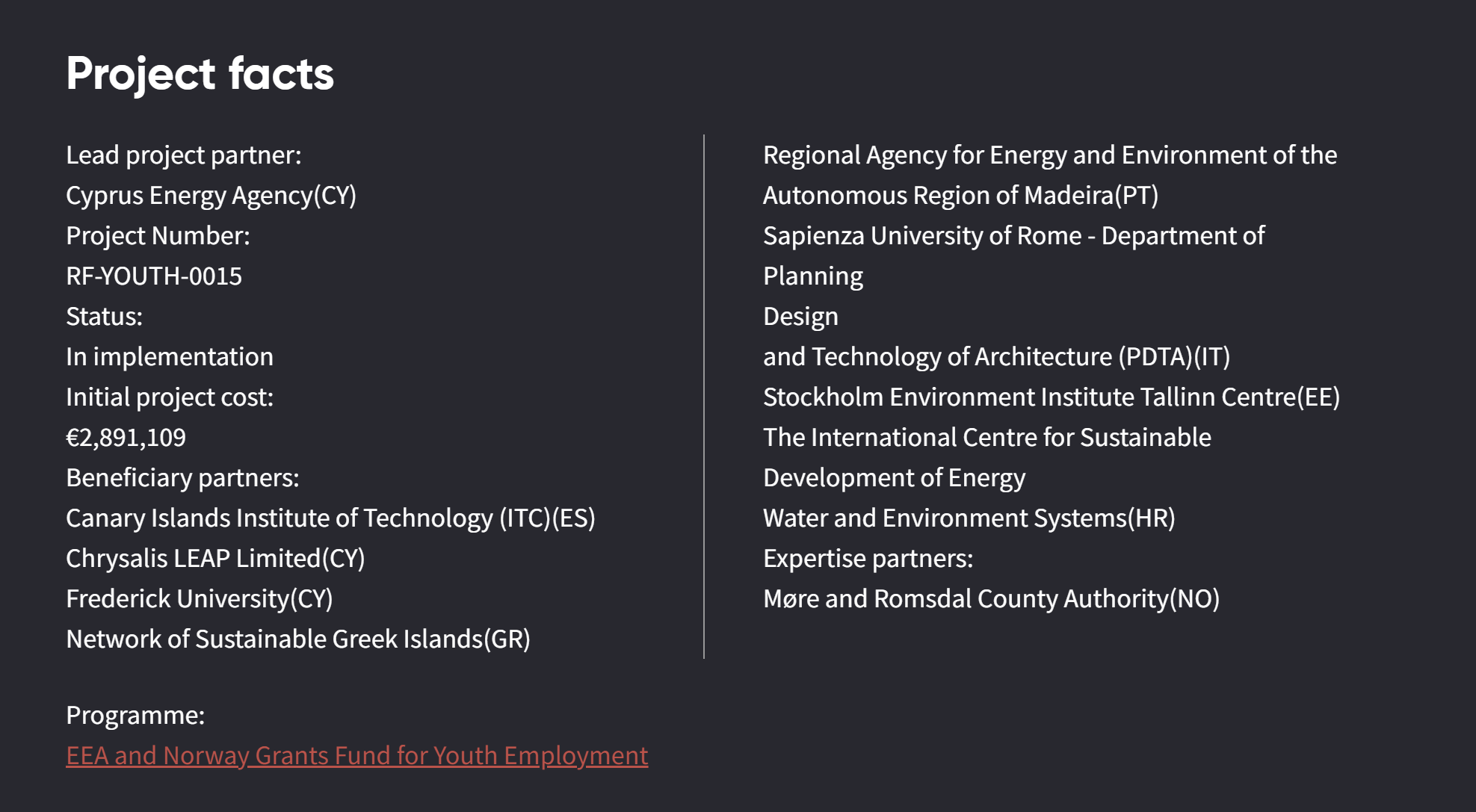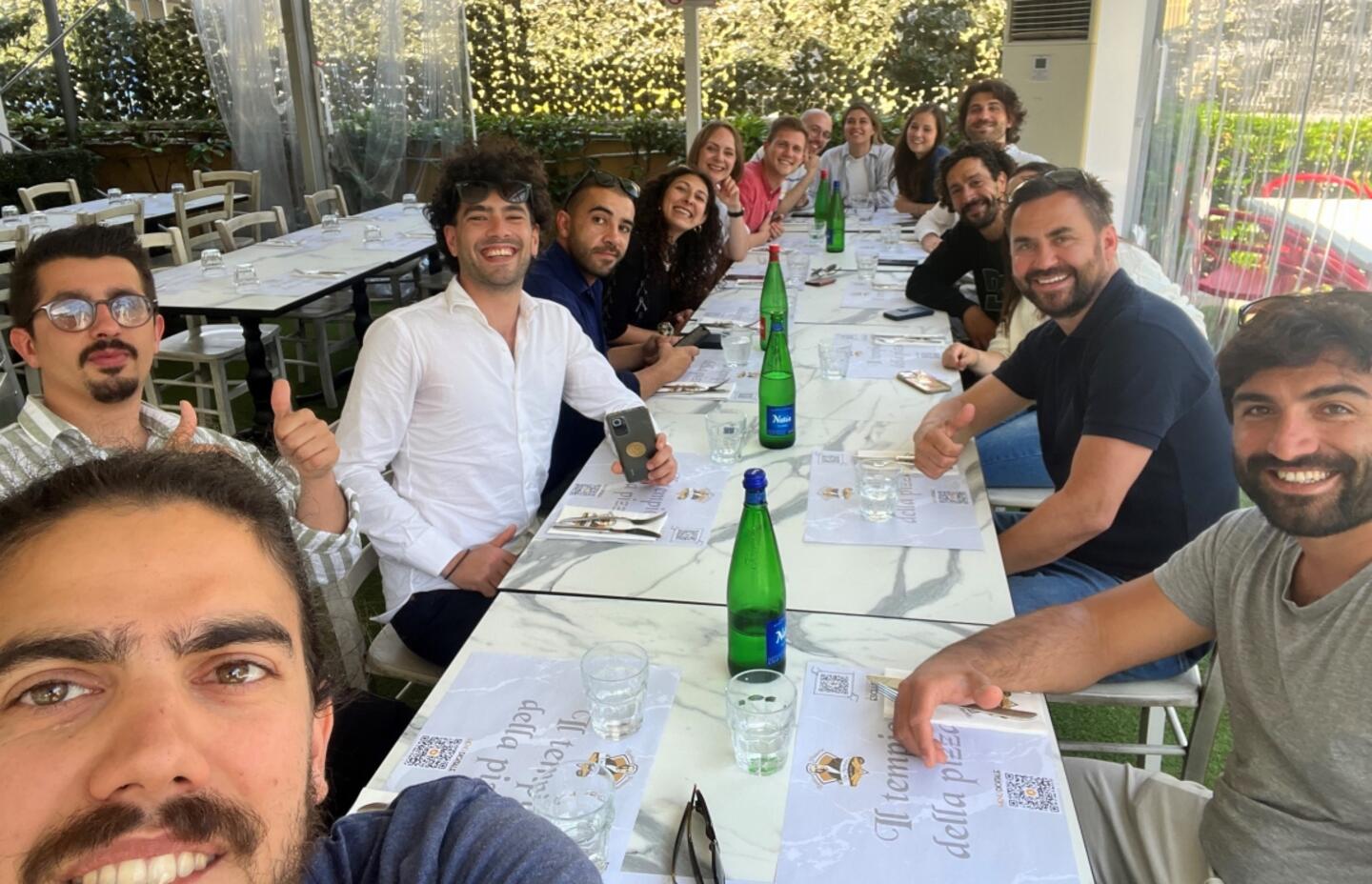Creating green jobs for Europe’s youth
Island communities in the South of Europe struggle with high unemployment, especially among young people. In the EEA and Norway Grants project YENESIS, the goal is to prevent unemployment by giving young people in Europe the skills they need to get a "green" job or create their own "green" workplace.
The project YENESIS – Youth Employment Network for Energy Sustainability in Islands – is a cooperation between 10 partners from eight European countries.
Islands suffer from high unemployment throughout the year, with a seasonal peak on non-tourist periods, especially amongst young people – this is what this project aims to tackle.
The target group in YENESIS is young people between the ages of 22-29 who have completed education but are out of work, the so-called NEETs – not in education, employment or training.
The project’s aim is to create green jobs for the youth in the areas of energy efficiency, renewable energy sources, sustainable tourism and sustainable mobility.
Furthermore, embracing the Smart Islands Initiative and its principles of bottom-up approaches for innovation in islands, transnationality is at the core of the project as it recognises the commonalities amongst islands around Europe and understands the potential of exchanging good practices, as well as joint endeavours.
Focus on sustainable development
“Many of the island communities in the south of Europe are marginal communities that are negatively affected by climate change, and there is a need to sharpen the focus on sustainable development, says adviser Arne Håkon Sandnes with Møre and Romsdal County Authority, the Norwegian expert partner in the project. The expert partner contributes with expertise, tools and good examples in soft skills, entrepreneurship and sustainable job creation.
In the period March-June this year, there were development gatherings for the project participants on Grand Canaria, Madeira, in Tallinn, Cyprus, Athens, Rome and Zagreb.
The gatherings were led by Møre and Romsdal County Authority, and their role was to give the participants increased competence in "soft skills", for example interpersonal relationships, problem solving, adaptability, cooperation, leadership and, not least, communication.
- These are skills that should make it easier to succeed on the job market. Earlier in the project, it was discovered that there was little focus on this type of competence in the participating regions, and we have therefore developed a training module that will give the participants the necessary skills, says Sandnes.

“We met many wonderful young people who were both curious, reflective and engaged. Although there are cultural differences and linguistic challenges, we found that the topic we taught was very relevant everywhere. We also gained useful insights into how young people from other regions think about these subjects, including instructive feedback that challenged our understanding of the context the NEETs stand in, says Vegard Flø, supervisor with Møre and Romsdal County Authority who supervised the participants at the gatherings.
Bringing it home
“YENESIS has been a very interesting project to contribute to, where we have had the opportunity to work both directly with the individual participants in the project and the challenges they have faced, while at the same time we have been able to work on improving the systems that will support relevant sustainable jobs for the young”, says Sandnes.
And the Norwegian County Authority is now making use of the experiences and the courses from the project in their work at home.
“We have further developed the soft-skills courses developed for YENESIS, and in the new year we will run a series of courses for our own NEETs in Møre and Romsdal aged 16-24. In addition, we will use the courses as competence development for the students in our internship programme. This is a good example of how we bring home the effects of our commitment internationally to also improve our own systems”, says Sandnes.
“A once in a lifetime experience”
In the past four years, during the implementation of the project, the YENESIS consortium has managed to work together in good coordination, despite great obstacles, such as the cancelation of all travelling due to COVID-19.
“All partners showed great flexibility for plans A, B, C, D e What stood out was the great importance of including an expert partner in the consortium, which offered indeed not only great expertise on various technical topics, but also a once in a lifetime experience to all participants of the project”, says Myrto Skouroupathi, Environmental Engineer at the Cyprus Energy Agency, the lead partner organisation in the project.
And the project has produced great results in this short period.
“Already the majority of the initial beneficiaries of the YENESIS project have found sustainable employment, some of them also starting their own business and now having employees of their own. With YENESIS 2.0 we have had a great opportunity to expand our impact to many more categories of stakeholders, trying to solve the issue of youth unemployment before it even appears – working with career advisors, teachers, and employers. We are hopeful that as the green transition progresses, our input on green jobs and the future of employment will become more and more relevant and the relevant institutions will continue taking up our recommendations, says Communication Officer Kyriaki Kyprianou from the partner organisation Chrysalis LEAP.

Online platform with opportunities
The YENESIS online platform has been created. The platform contains good practices for youth employment shown through numerous success stories. The goal of the platform is to promote innovative practices for employment to the interested parties in order to adopt similar actions towards lowering youth unemployment. The platform is open to both NEETs themselves and investors or other stakeholders. Participants have the opportunity to share business opportunities, find partners, pitch their ideas, and collaborate. The platform will ensure the lasting effect of the project, attracting young professionals and entrepreneurs with similar interests and entrepreneurial ventures.
As part of the project an e-course was developed consisting of the four main thematic areas of the project, available in seven languages: English, Greek, Spanish, Italian, Croatian, Estonian and Portuguese.
The YENESIS project is part of the Fund for Youth Employment programme which was established in 2017 to contribute to sustainable and quality youth employment in Europe. Unlike the ordinary programmes funded by Iceland, Liechtenstein and Norway, this Fund has a transnational focus – it helps entities across Europe pooling their efforts to find new ways of reducing youth unemployment.
Almost 10 million young people in Europe are not in employment, education or training. Unemployment among youth is a shared European challenge. It puts young people at risk of poverty, prevents them from fully participating in society, and it can take a toll on their health, wellbeing and professional future.

